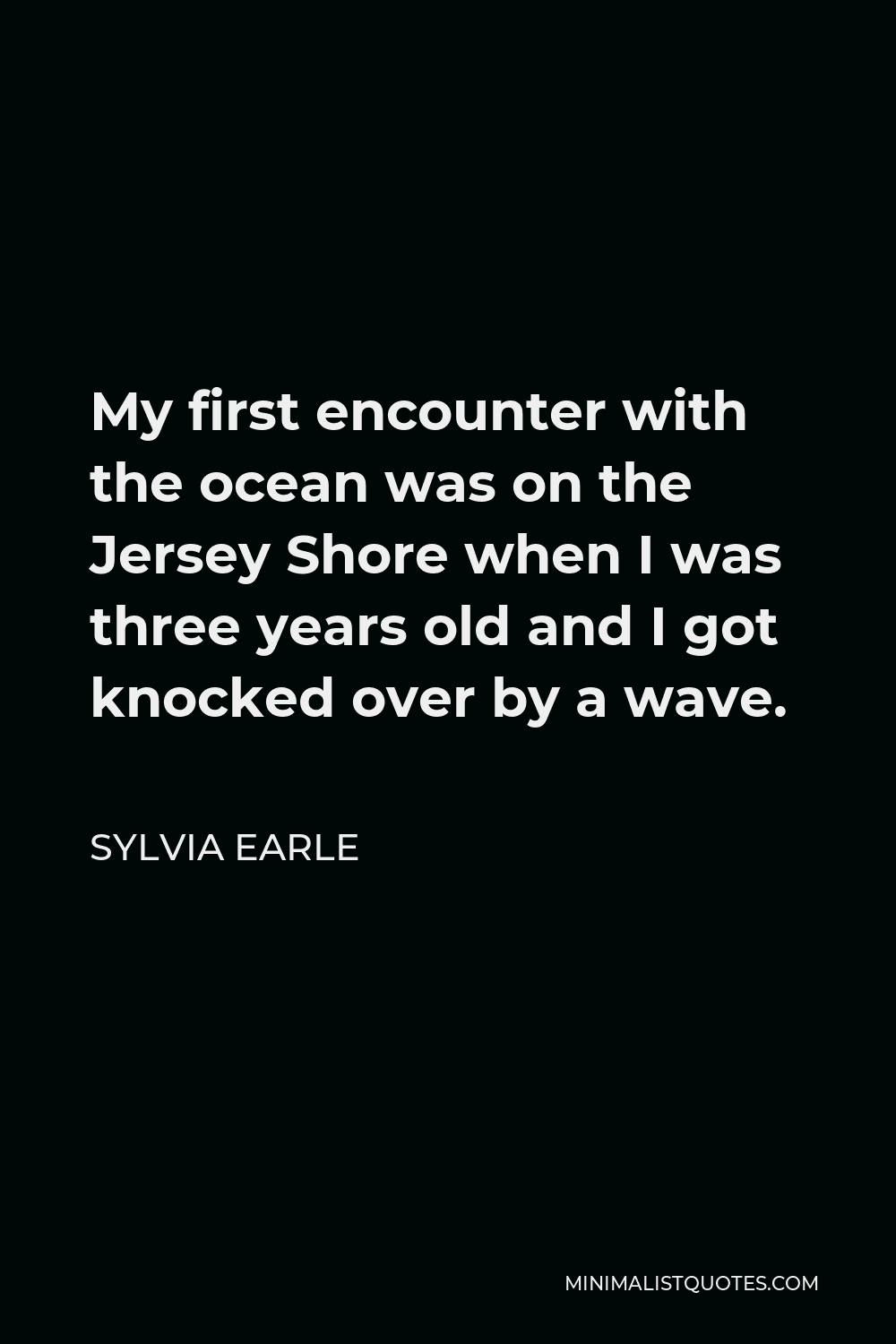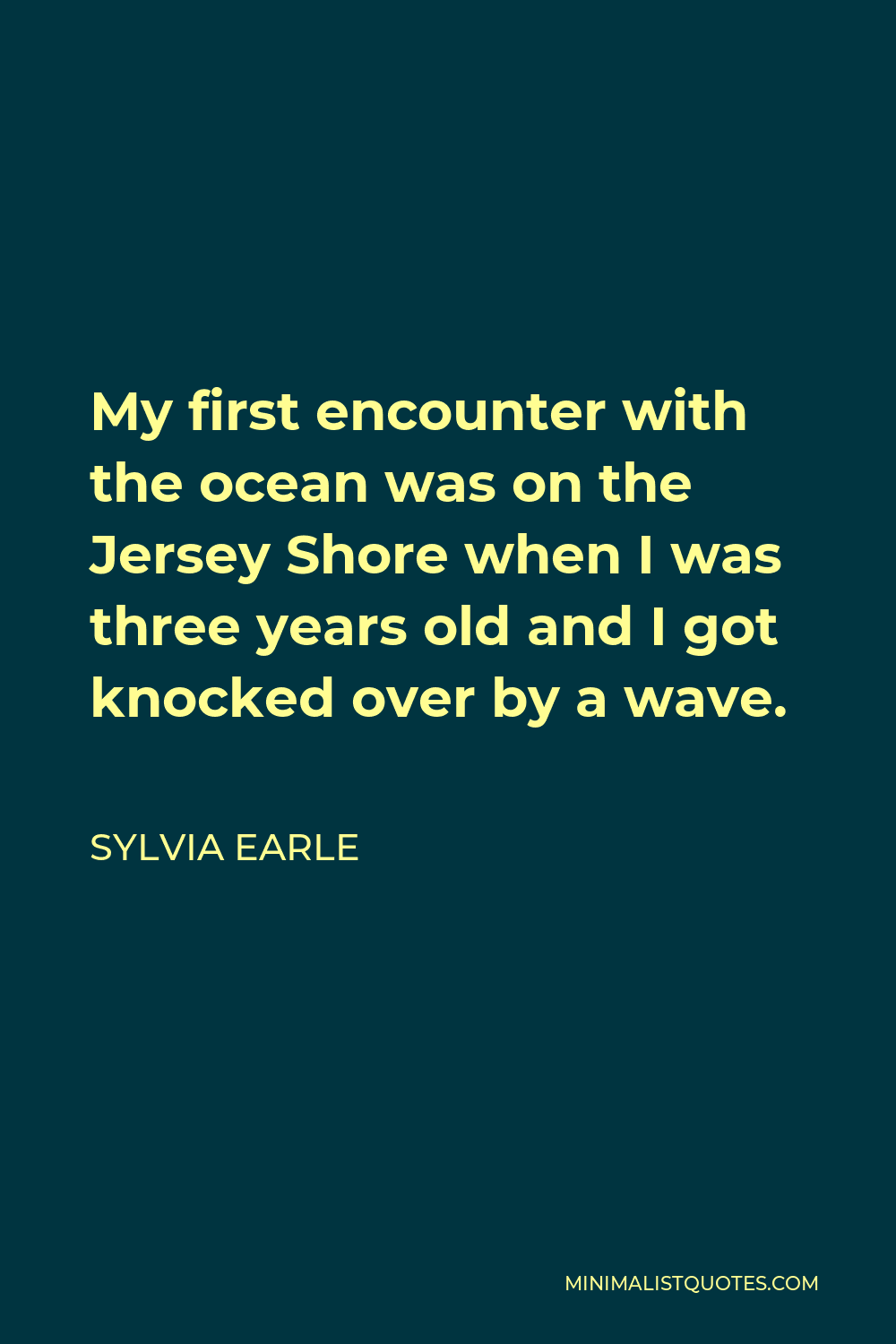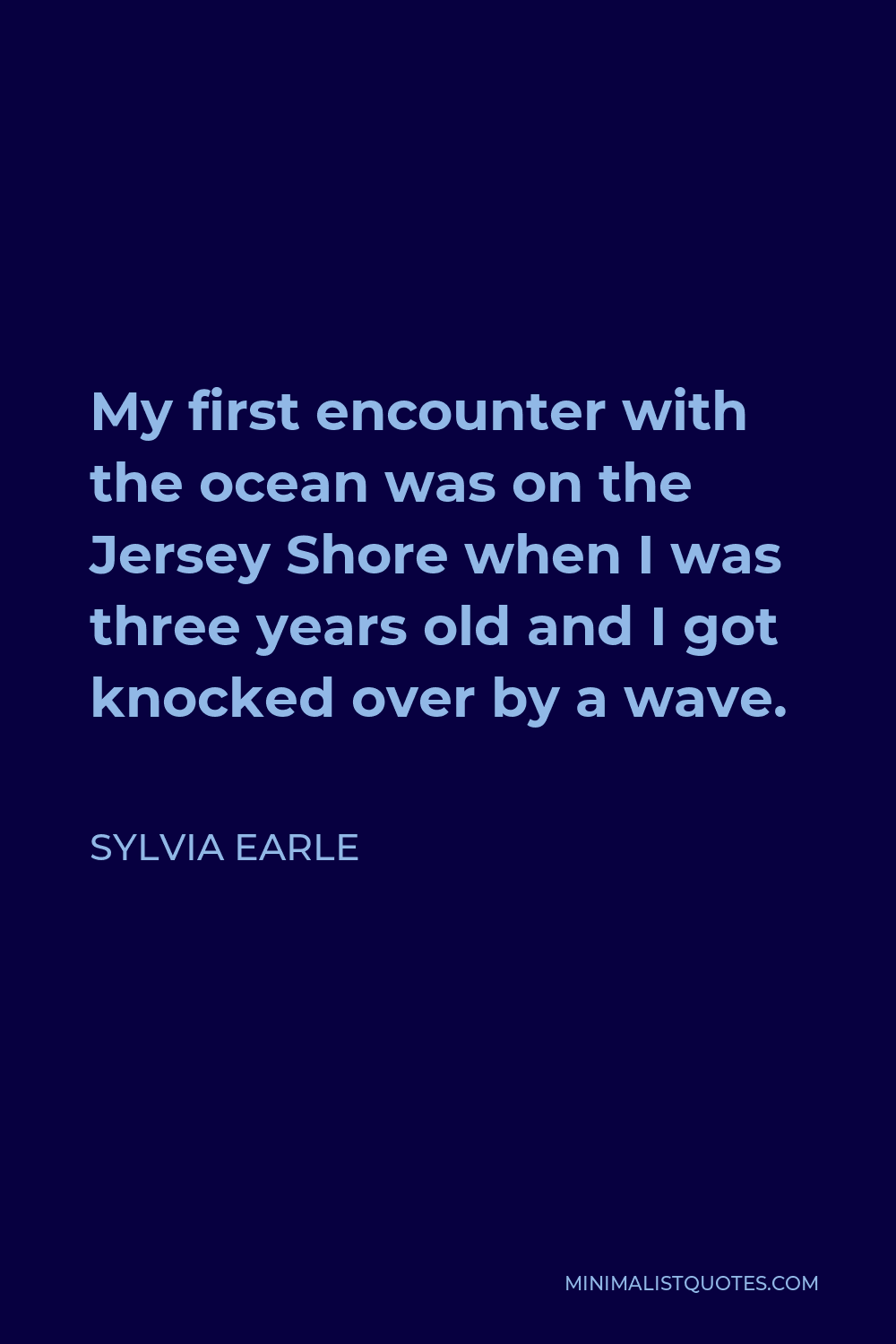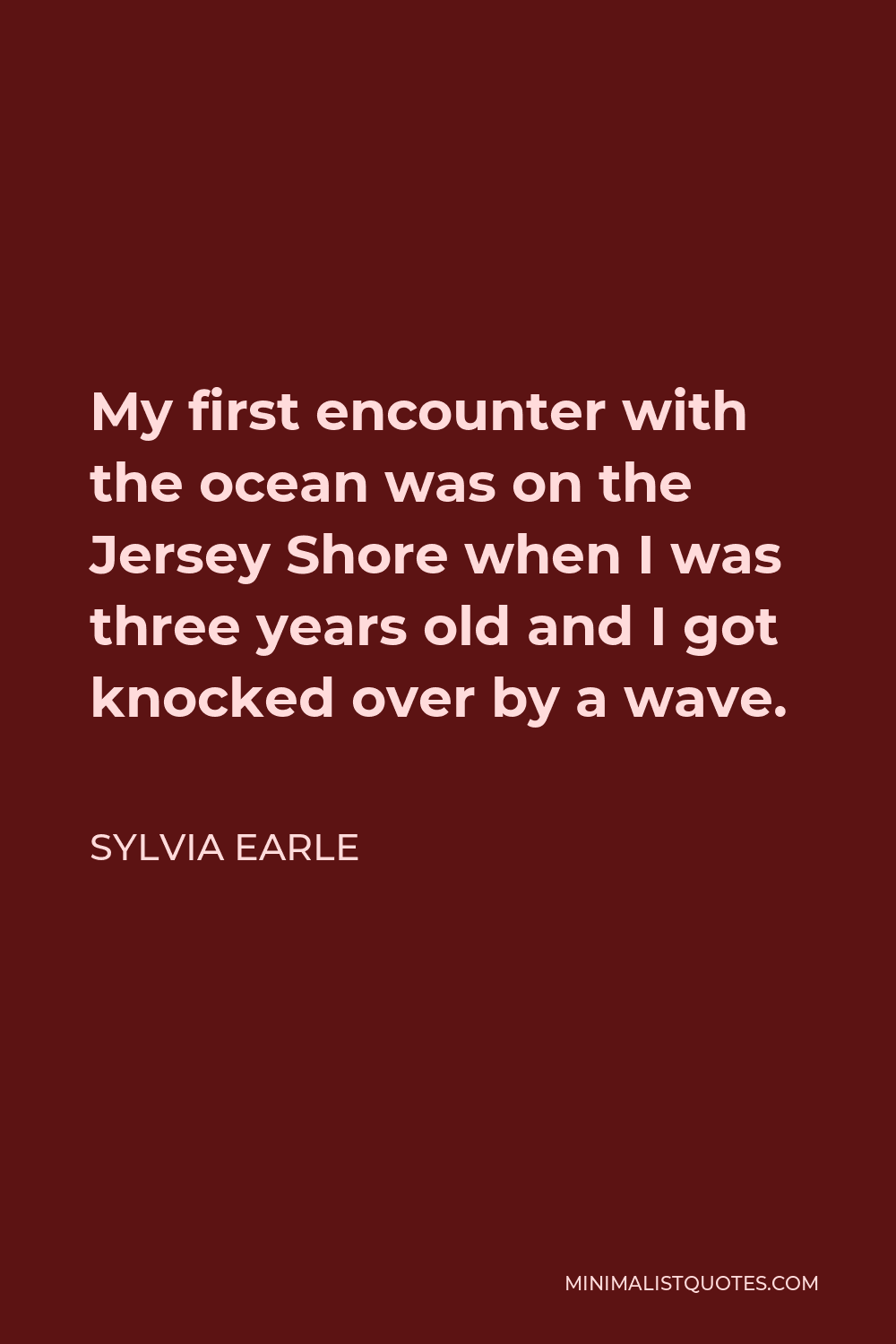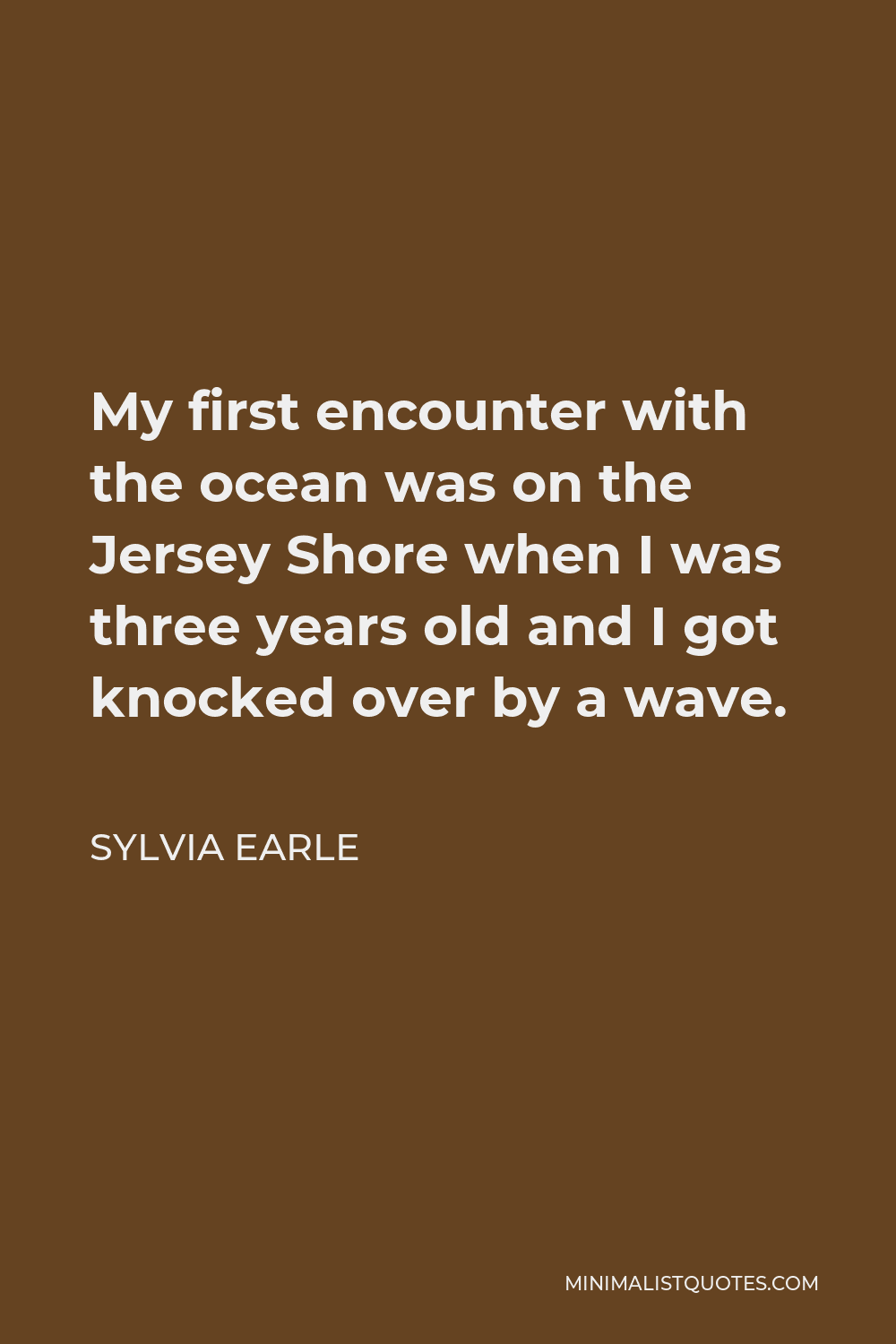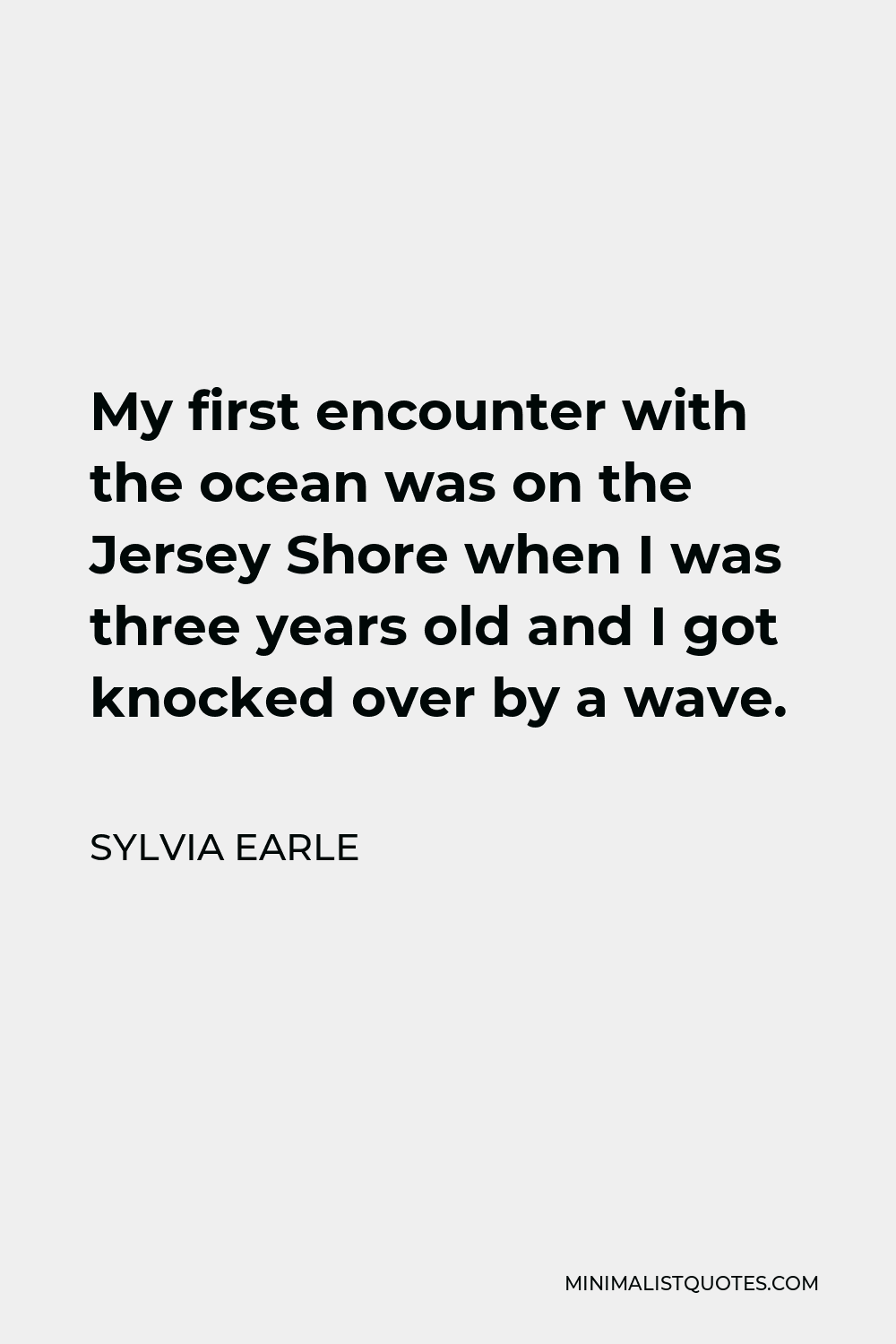As a child, I was aware of the widely-held attitude that the ocean is so big, so resilient that we could use the sea as the ultimate place to dispose of anything.
SYLVIA EARLEMy first encounter with the ocean was on the Jersey Shore when I was three years old and I got knocked over by a wave.
More Sylvia Earle Quotes
-





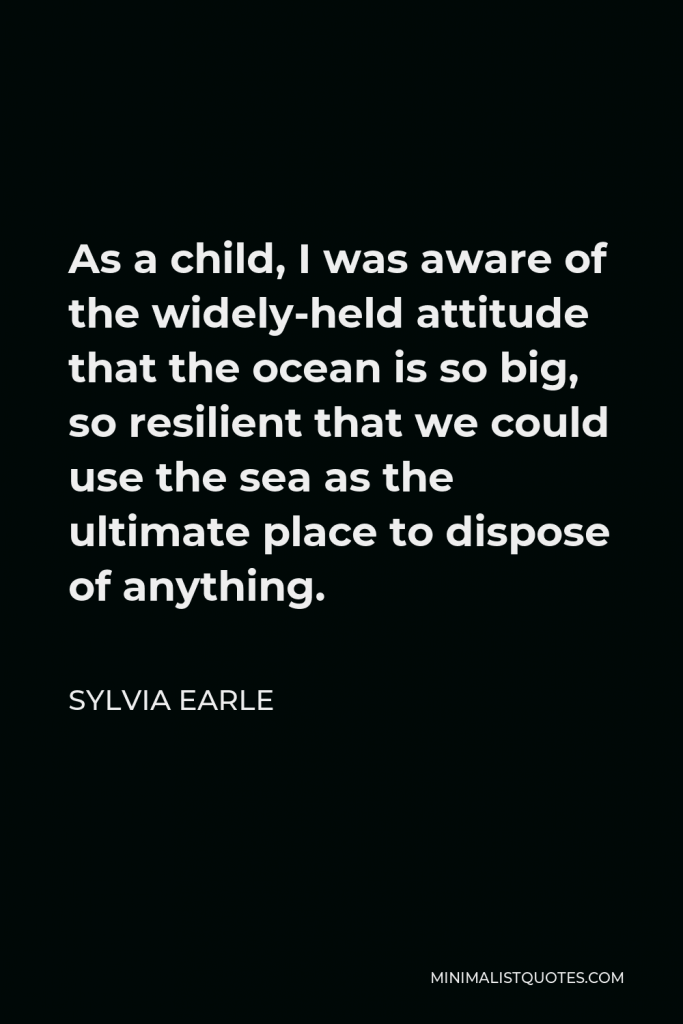

-





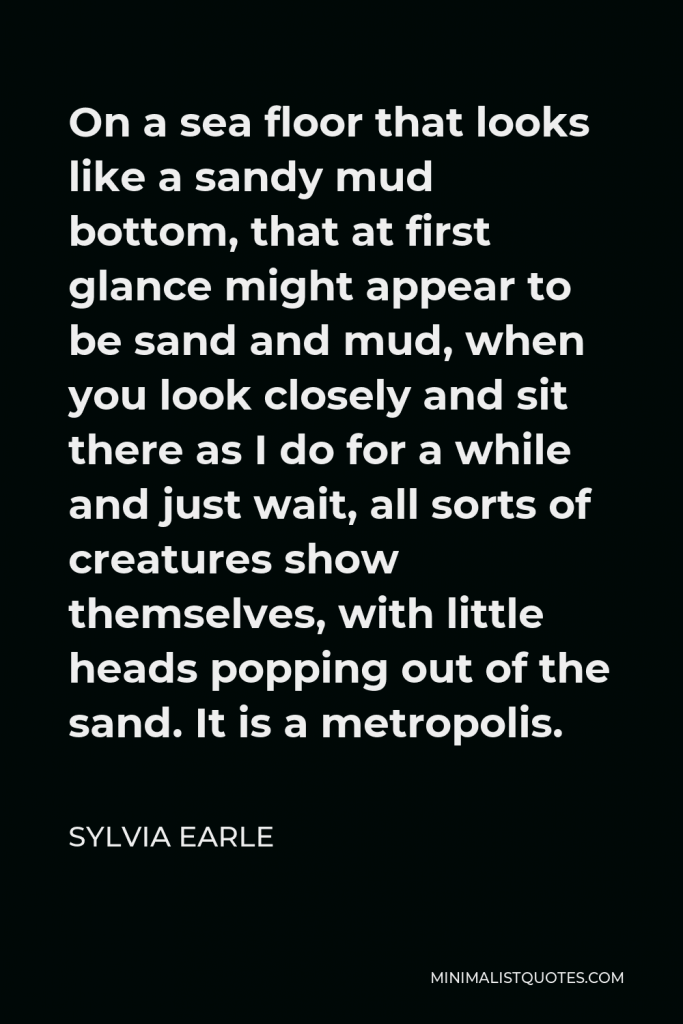

On a sea floor that looks like a sandy mud bottom, that at first glance might appear to be sand and mud, when you look closely and sit there as I do for a while and just wait, all sorts of creatures show themselves, with little heads popping out of the sand. It is a metropolis.
SYLVIA EARLE -







A lumberman will look at a forest and see so many board feet of lumber. I see a living city.
SYLVIA EARLE -







For heaven’s sake, when you see the enemy attacking, you pick up the pitchfork, and you enlist everybody you see.
SYLVIA EARLE -





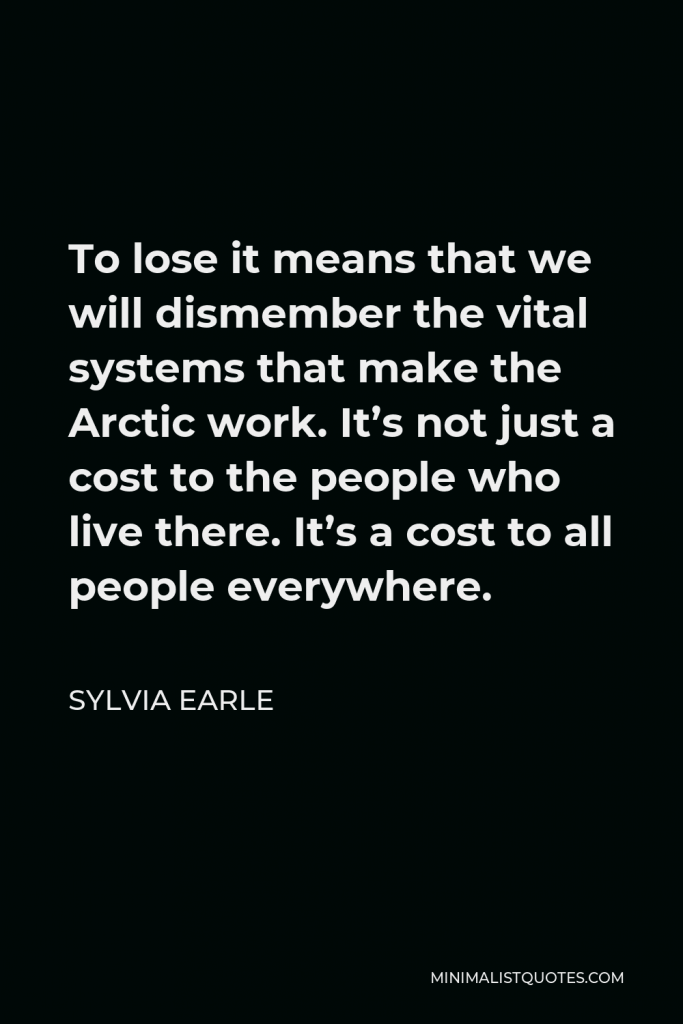

To lose it means that we will dismember the vital systems that make the Arctic work. It’s not just a cost to the people who live there. It’s a cost to all people everywhere.
SYLVIA EARLE -





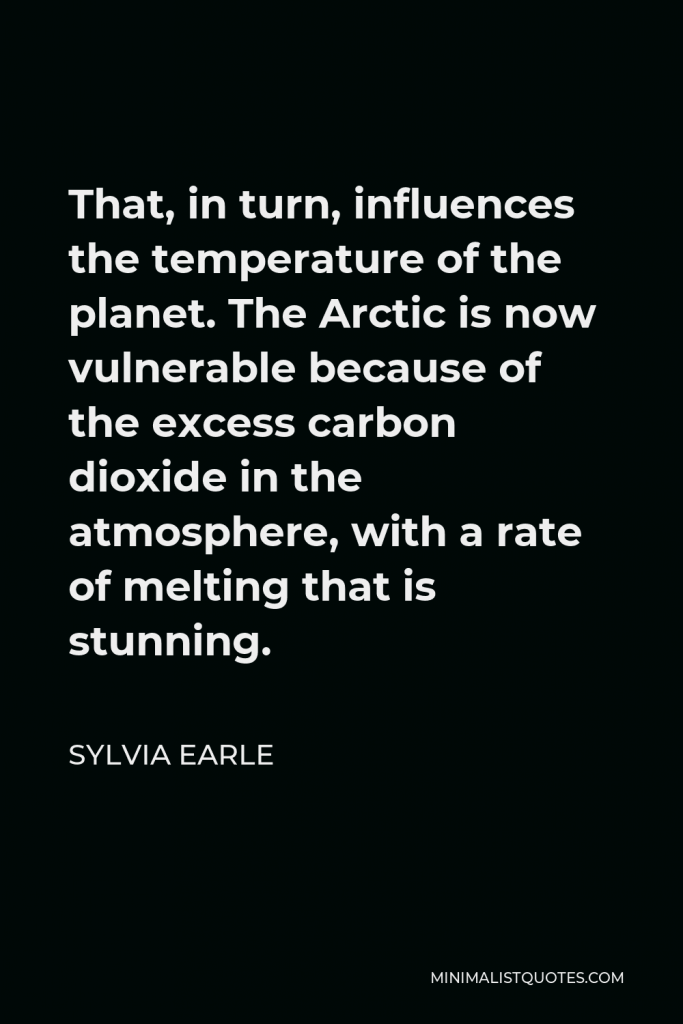

That, in turn, influences the temperature of the planet. The Arctic is now vulnerable because of the excess carbon dioxide in the atmosphere, with a rate of melting that is stunning.
SYLVIA EARLE -





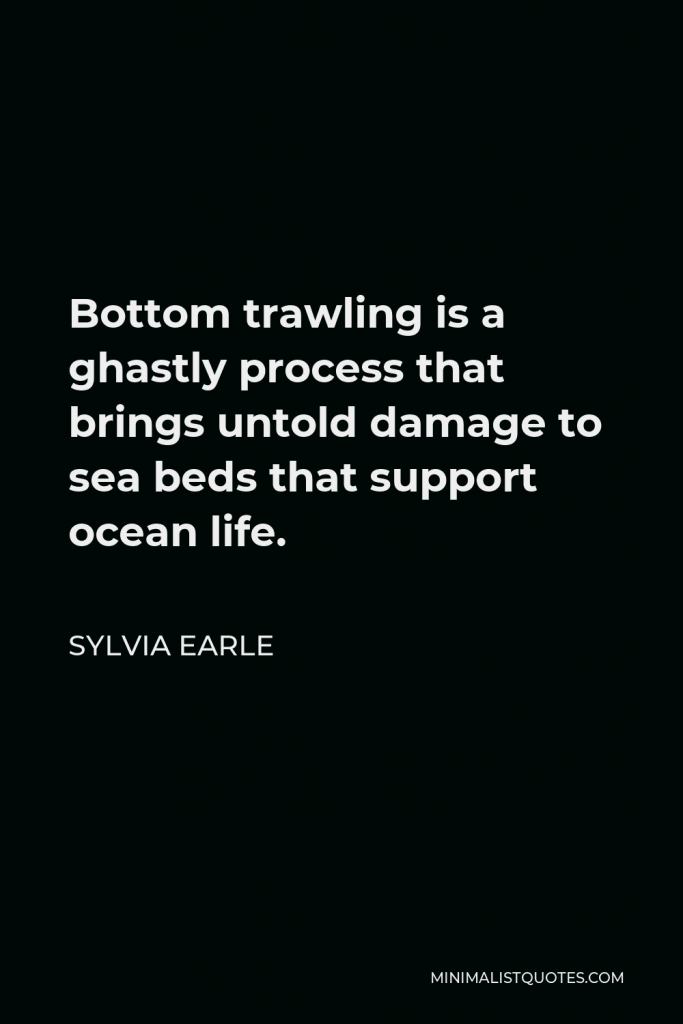

Bottom trawling is a ghastly process that brings untold damage to sea beds that support ocean life.
SYLVIA EARLE -





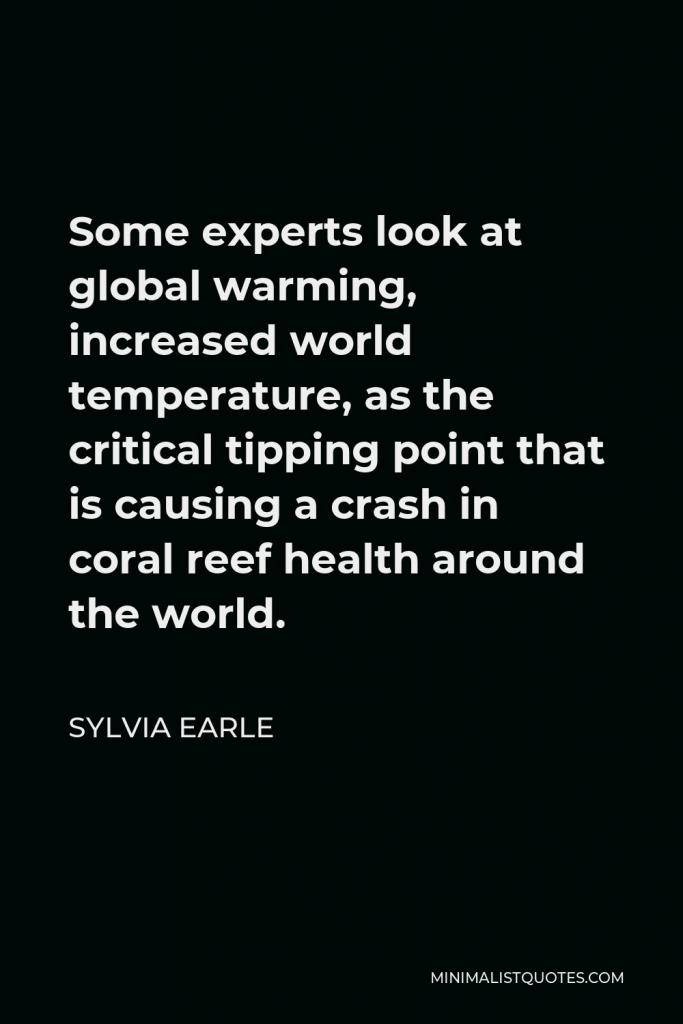

Some experts look at global warming, increased world temperature, as the critical tipping point that is causing a crash in coral reef health around the world.
SYLVIA EARLE -





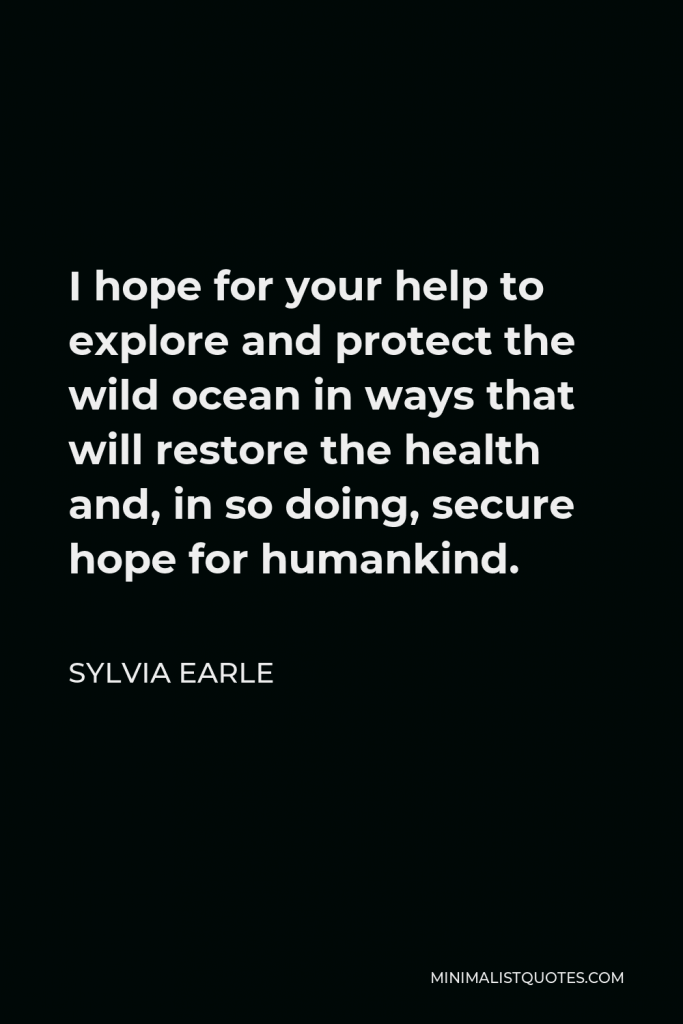

I hope for your help to explore and protect the wild ocean in ways that will restore the health and, in so doing, secure hope for humankind.
SYLVIA EARLE -





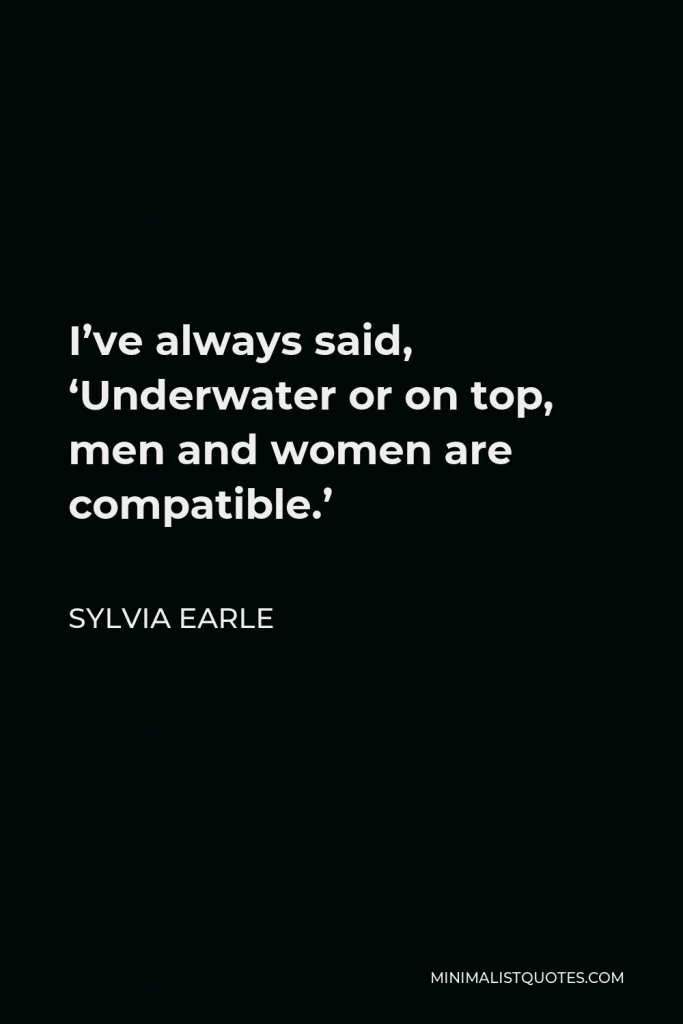

I’ve always said, ‘Underwater or on top, men and women are compatible.’
SYLVIA EARLE -





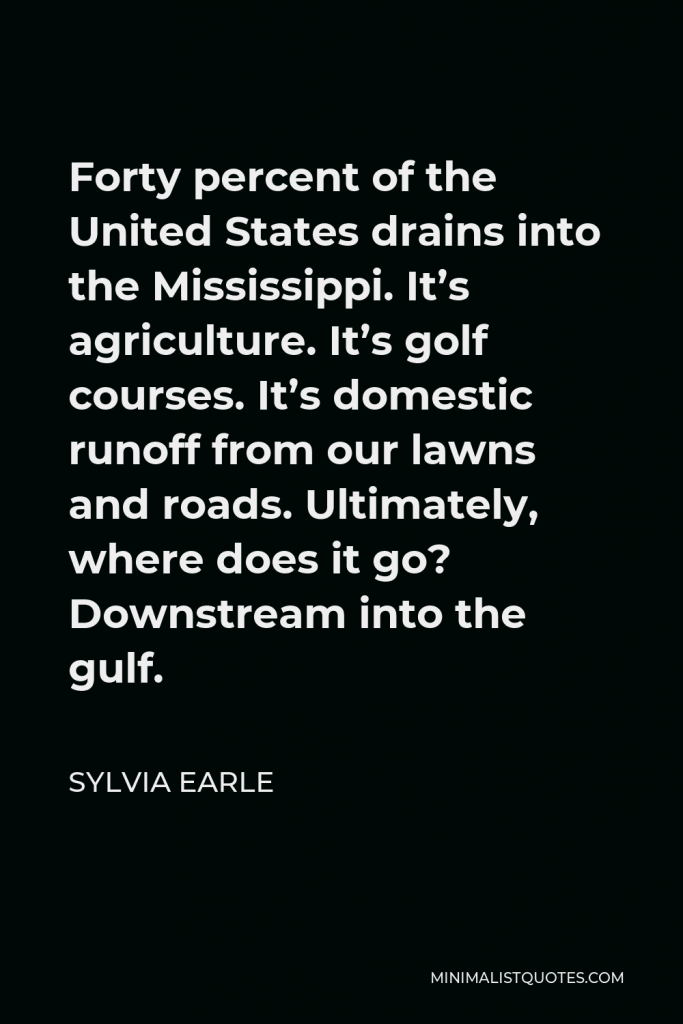

Forty percent of the United States drains into the Mississippi. It’s agriculture. It’s golf courses. It’s domestic runoff from our lawns and roads. Ultimately, where does it go? Downstream into the gulf.
SYLVIA EARLE -





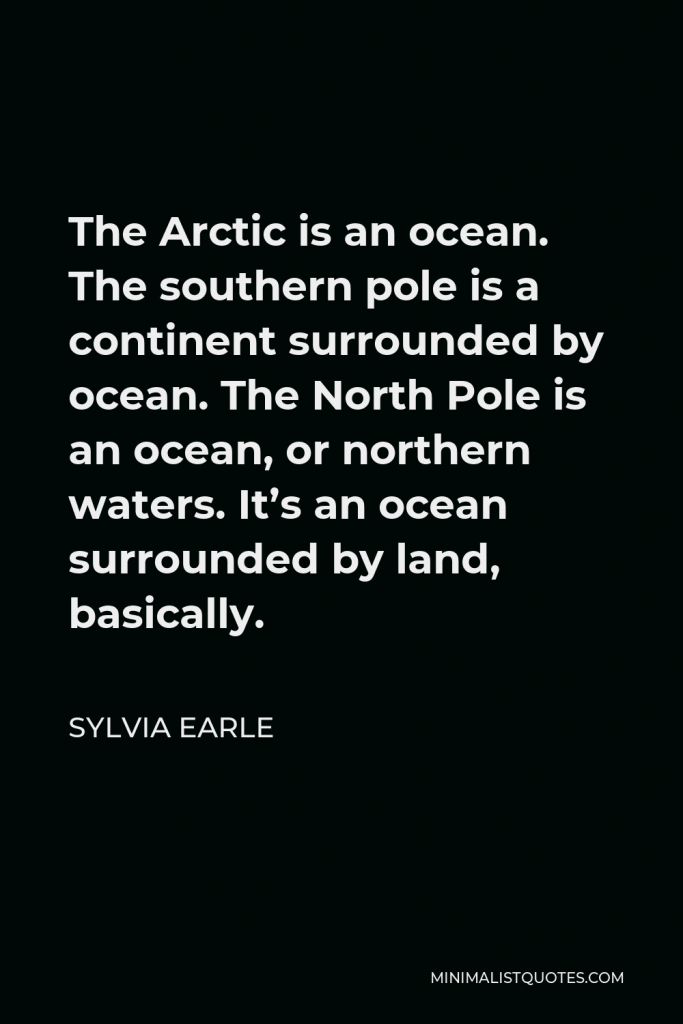

The Arctic is an ocean. The southern pole is a continent surrounded by ocean. The North Pole is an ocean, or northern waters. It’s an ocean surrounded by land, basically.
SYLVIA EARLE -





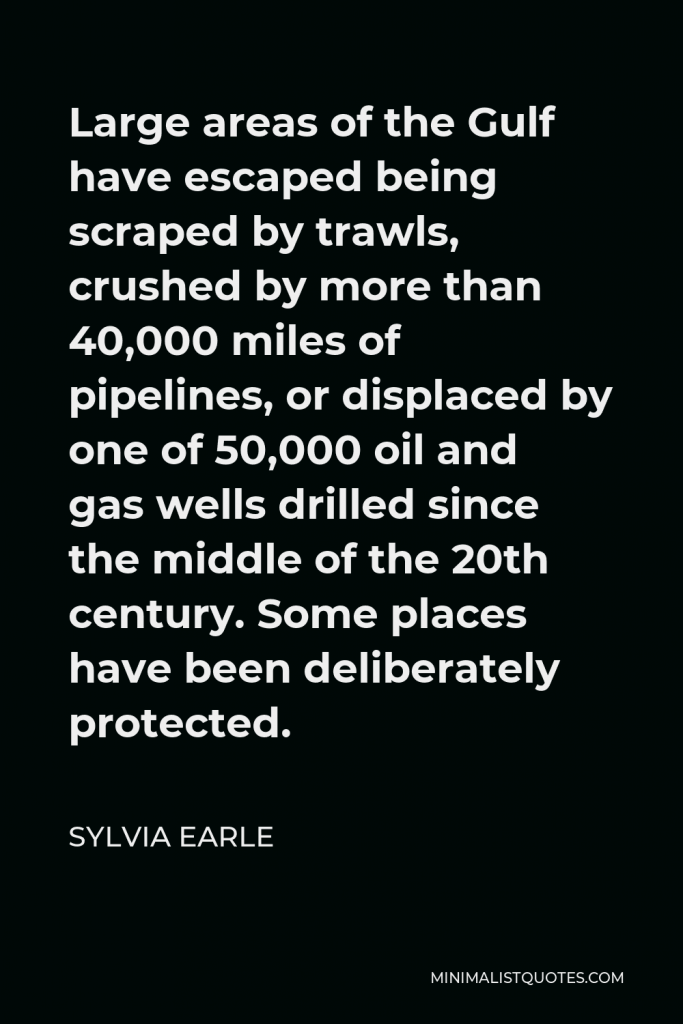

Large areas of the Gulf have escaped being scraped by trawls, crushed by more than 40,000 miles of pipelines, or displaced by one of 50,000 oil and gas wells drilled since the middle of the 20th century. Some places have been deliberately protected.
SYLVIA EARLE -







You don’t stand around arguing about who’s responsible, or who’s going to pay.
SYLVIA EARLE -





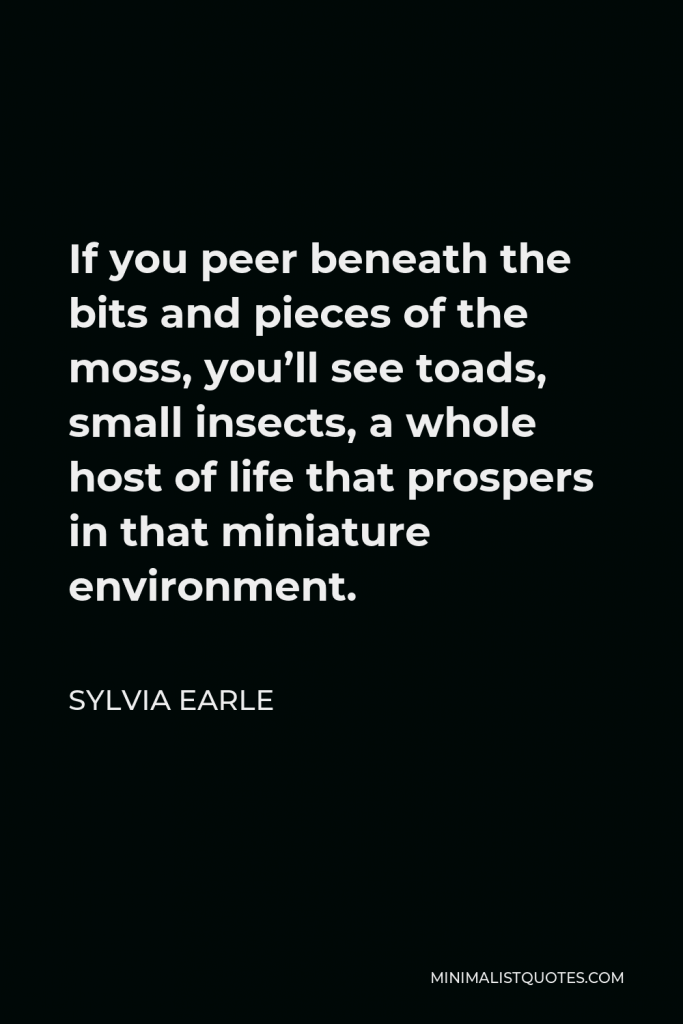

If you peer beneath the bits and pieces of the moss, you’ll see toads, small insects, a whole host of life that prospers in that miniature environment.
SYLVIA EARLE -





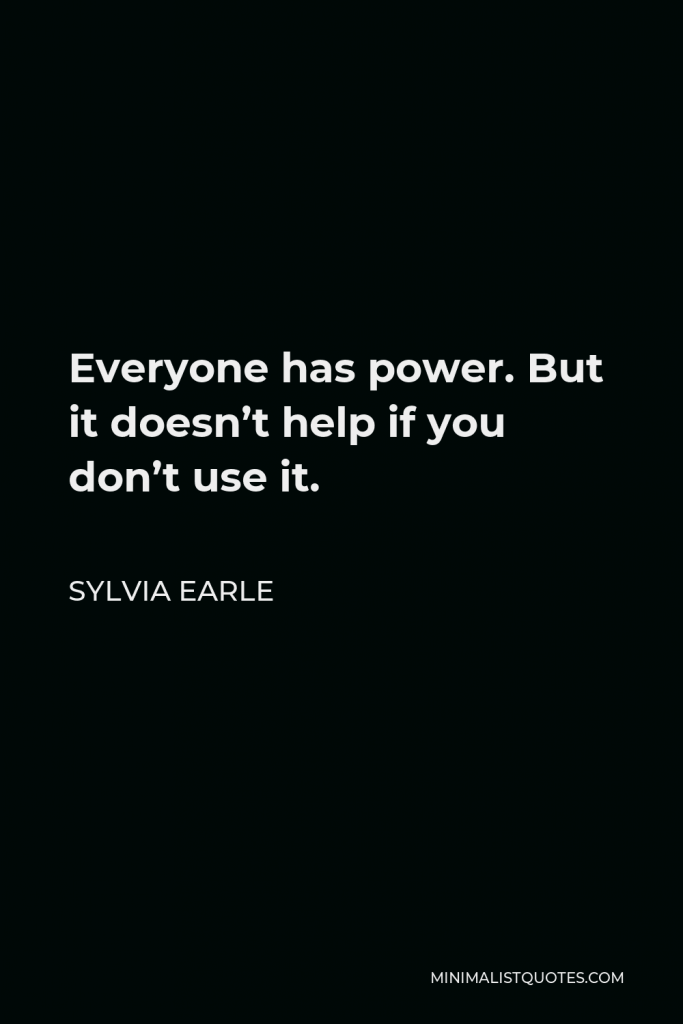

Everyone has power. But it doesn’t help if you don’t use it.
SYLVIA EARLE
